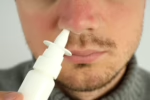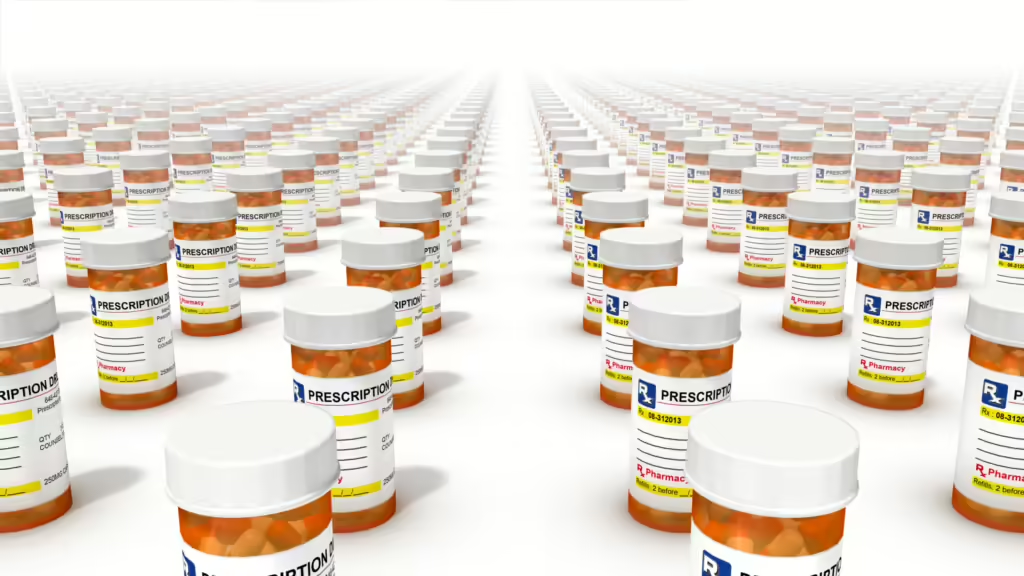Is There A Difference Between Adderall and Ritalin?

Adderall and Ritalin are most commonly used to treat the same neurodivergent disorders – but they are made from different chemicals that affect different individuals, meaning some people will respond to one stimulant better than the other.
For those with neurodivergent conditions like attention deficit disorder (ADD) and attention-deficit/hyperactivity disorder (ADHD), medications are often prescribed to help manage symptoms and calm down the overactive parts of the brain.
Stimulant drugs like Adderall and Ritalin work on the central nervous system, helping to control the levels of dopamine and norepinephrine in the brain. This increases concentration and allows those who struggle to focus to do so more easily.
But not everyone responds the same to these stimulants, making it vitally important to talk with your doctor about the best option for you.
What is Adderall?
Classified by the DEA as a schedule II drug, Adderall has approved medical usage, but also a high potential for abuse. Adderall is often prescribed for the treatment of narcolepsy and attention-deficit/hyperactivity disorder (ADHD). It is a combination of the two stimulants, amphetamine-dextroamphetamine, which work in the brain and body to control impulse and hyperactivity.
When taken as prescribed, Adderall increases energy and focus; at high doses, it stimulates feelings of pleasure – the main reason this stimulant is often abused. While Adderall can be legally obtained through legitimate prescriptions, users may obtain doses from friends or family, allowing them to take it not as prescribed.
Adderall is prescribed in two forms: immediate–release and extended-release oral tablets. Based on their time release, they help individuals keep their symptoms of ADHD or narcolepsy at bay by effectively working on the central nervous system. Extended-release capsules work all day long, while immediate-release options work for approximately four hours.
Adderall is an effective medication for the treatment of ADHD and narcolepsy so long as side effects are kept at bay through careful consumption according to the doctor’s instructions.
What are the side effects of Adderall?
The side effects of Adderall are minimal when consumed as prescribed – when abused, however, risks of experiencing negative side effects do increase.
The most common side effects of Adderall, according to Mayo Clinic, include:
- “Bloody or cloudy urine
- “Difficult, burning, or painful urination
- “Fast, pounding, or irregular heartbeat or pulse
- “Frequent urge to urinate
- “Lower back or side pain”
Additional side effects that are less common include:
- GI problems, including nausea and diarrhea
- Loss of appetite
- Muscle and joint pain/discomfort
- Difficulty sleeping
- Feeling abnormally tired or weak
- Flu-like symptoms, including fever, cough, runny nose and chills
Adherence to prescription instructions and close communication with your doctor is key to keeping these symptoms at bay.
What is Ritalin?
“Ritalin is a central nervous system stimulant. Methylphenidate affects chemicals in the brain and nerves that contribute to hyperactivity and impulse control. Ritalin is used to treat attention deficit disorder (ADD), attention deficit hyperactivity disorder (ADHD), and narcolepsy.”
Ritalin is highly similar to Adderall in that it is also classified as a schedule II drug with an approved medical use, but a high possibility for abuse. “Like other potent stimulants, methylphenidate is abused for its “feel good” stimulant effects. The occasional abuser may use methylphenidate as a study aid to increase attention and stay awake. Others may use methylphenidate recreationally and combine it with alcohol or some other depressant to feel more alert or less drunk.”
When used properly, however, Ritalin allows countless individuals to manage their symptoms and feel more in control of their lives and habits.
Ritalin side effects
Ritalin, like Adderall, does not present many side effects for individuals who utilize the medication as prescribed. It is when abuse begins occurring that negative side effects, including the risk of addiction and overdose, are more likely to occur.
Common side effects of Ritalin include:
- Stomach pain
- Nausea
- Vomiting
- Loss of appetite
- Weight loss
- Headache
- Drowsiness
- Muscle tightness
- Restlessness
- Irritability
If you experience a worsening of side effects or feel like these effects are doing more harm than good, contact your doctor to discuss other options.
The difference between Adderall and Ritalin
Adderall and Ritalin are most commonly used to treat the same neurodivergent disorders, but they are made from different chemicals that affect different individuals, meaning some people will respond to one stimulant better than the other. While they have similar side effects, one person may experience them while on Adderall but will not experience them while using Ritalin (and vice versa).
For this reason, it is important to pay close attention to how you respond to the drug(s), both positively and negatively. If you feel like one stimulant is not effective in its treatment, it could be worth seeking the advice of your doctor to figure out whether or not you may benefit from the effects of the other.
Seeking support for stimulant abuse?
If you or a loved one are struggling with stimulant abuse and want to begin the process of pursuing healing and recovery, help is available. At Silvermist Recovery, we prioritize individualized recovery plans to benefit our clients best and make recovery both maintainable and wholly sustainable.
Contact us online to speak with one of our counselors today and learn how our treatment options may benefit you.






